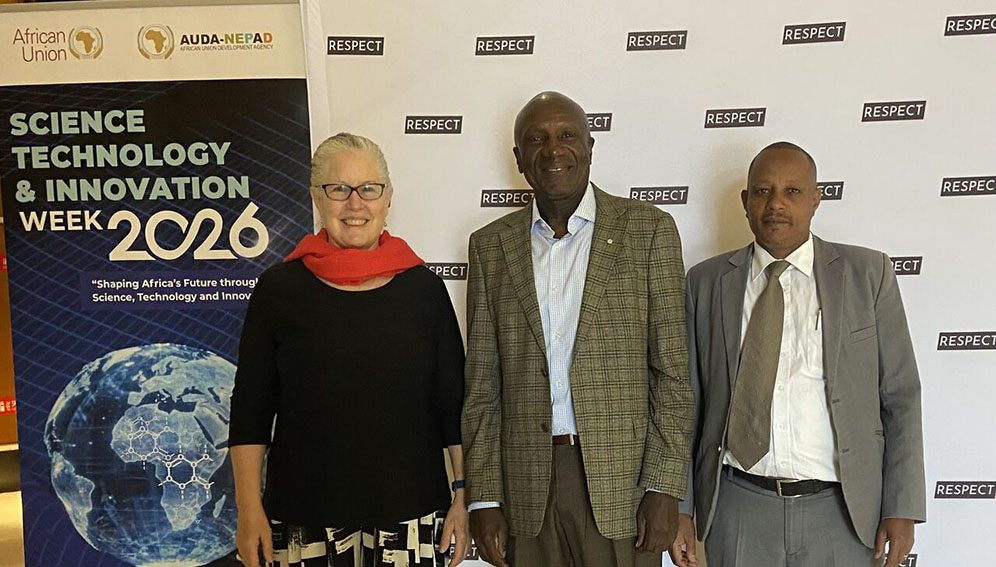SGCI News
The availability of national gender disaggregated data is essential in addressing persisting gender disparities in STI on the African continent, yet comprehensive reviews of available literature are scarce. Through work…
The availability of national gender disaggregated data is essential in addressing persisting gender disparities in STI on the African continent, yet comprehensive reviews of available literature are scarce.
Through work led by South Africa’s Human Sciences Research Council (HSRC), the SGCI has developed a series of country-specific context analyses synthesising available data on gender and inclusivity (G&I) in each SGCI participating country. The series highlights contextual factors driving G&I disparities in STI. Each country report is structured according to the UNESCO STEM and Gender Advancement (SAGA) policy impact areas: social norms and stereotypes, education (primary, secondary and tertiary), the career progression environment, research content and practice, policy, and entrepreneurship and innovation. The series is intended to assist SGCs in identifying areas in their institutional and country contexts in which a gender perspective can be strengthened.
In developing the G&I country context analyses, literature searches on G&I in STI on the continent returned little or inadequate country-specific details. The review methodology drew on published socio-economic, gender and education indicators to illustrate gender disparities along the STI pipeline and consequences for socio-economic development for each country. Attention was also paid to the extent to which diverse overlapping social identities that may compound marginalisation – such as age, race, disability and sexuality, among others – were attended to. Still, the findings demonstrate marked gender data gaps, particularly in the area of structural transformation, rendering some country profiles more detailed than others, with diversity beyond gender data being near absent.
Nevertheless, by using the approach of providing illustrative evidence-based indicator examples of gender disparity and parity gaps (where available) along the STI pipeline, the reports provide nuanced country profiles and evidence for transforming the unequal systems and structures that drive gender inequality.
A key objective of the SGCI theme on Gender and Inclusivity is providing resources to support SGCs in integrating a gender transformative approach across their activities. The G&I theme is led by the Human Sciences Research Council (HSRC) of South Africa in partnership with Gender at Work, the Council for the Development of Social Science Research in Africa (CODESRIA) and Jive Media Africa.
For more information, contact:
Dr Ingrid Lynch and Prof Lyn Middleton, HSRC
Email: LFluks@hsrc.ac.za
Related News
Building Africa’s science future: inside the SGCI alliance
As Phase 3 of the Science Granting Councils Initiative launches on the margins of the African Union Summit in Addis Ababa last week, the SGCI Alliance Chair explains why this moment marks a decisive turning point for African science. Cephas Adjei Mensah describes what is…
Open call: Support for science granting councils in Sub-Saharan Africa
The International Development Research Centre (IDRC), through the Science Granting Councils Initiative (SGCI), has launched a call for proposals to support science granting councils in Sub-Saharan Africa in the establishment and operationalisation of the Capacity Strengthening Hub under Phase III of the SGCI-3. The Hub…
SGCI phase 3: USD 42M boost for Africa’s STI agenda
It was an exhilarating moment as the Science Granting Councils Initiative (SGCI) Phase 3 funding announcement was officially made yesterday during the Science, Technology, and Innovation (STI) Week 2026, held in Addis Ababa, Ethiopia. The STI Week, organised by AUDA-NEPAD and the African Union and…
SGCI funded projects
Rwanda’s integrated approach to sustainable agriculture and nutrition
Project Titles & Institution Areas of Research Number of Projects being funded Project Duration Grant Amount In-Kind Distribution Council Collaboration with other councils





